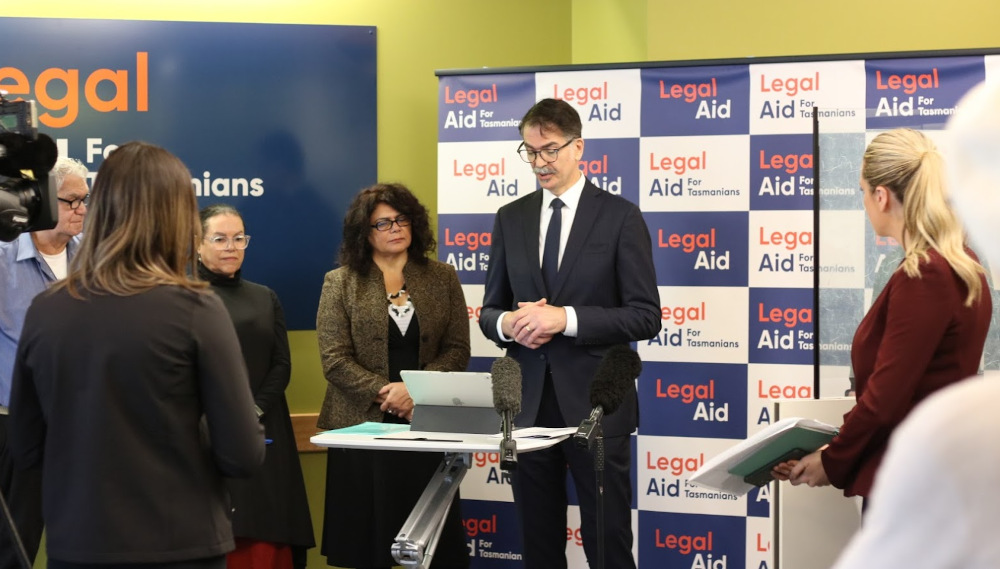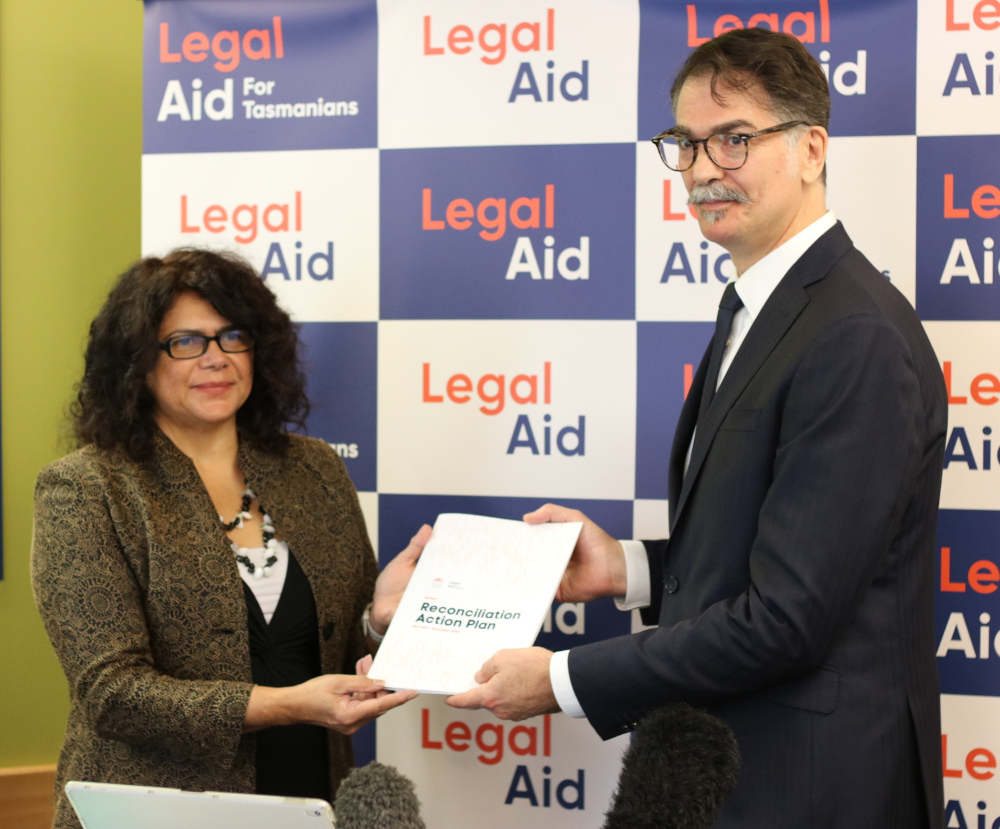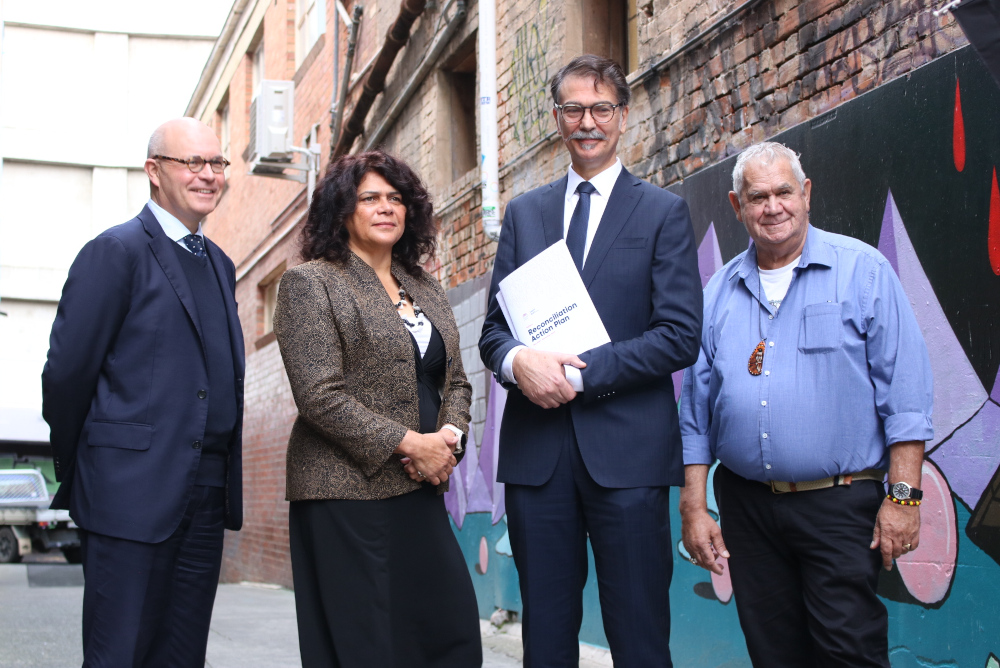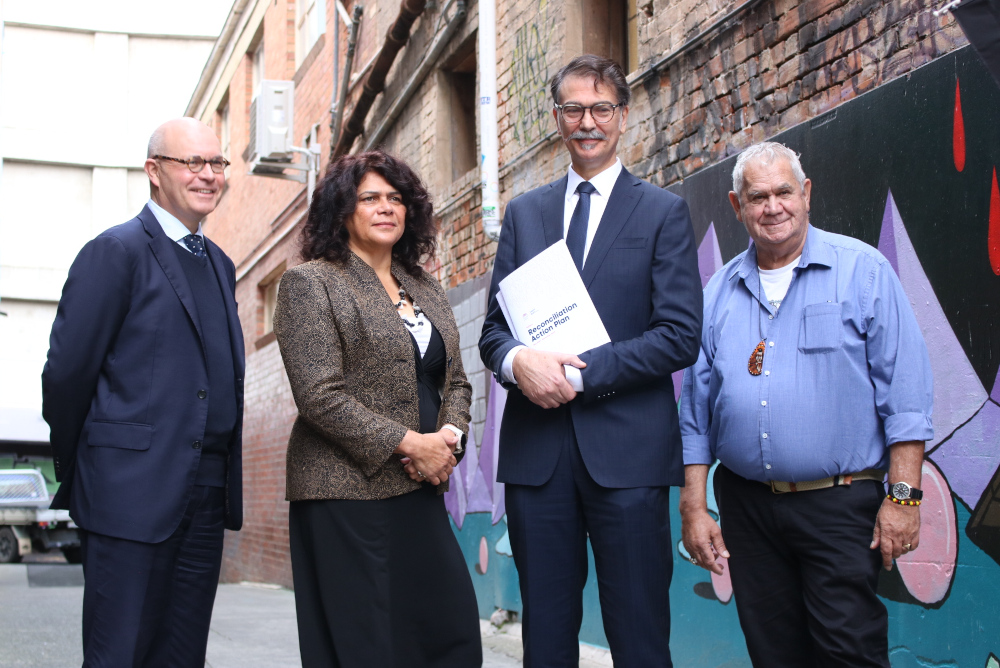Deliberate and practical first steps: Tasmania Legal Aid’s Reconciliation Action Plan launched
Tasmania Legal Aid launched its first Reconciliation Action Plan (RAP), affirming its commitment to working with First Nations Peoples on a journey to justice.
Respected Elder Uncle Dougie Mansell delivered a Welcome to Country for the Hobart launch on Thursday which was attended by Tasmania Aboriginal Legal Service(TALS) CEO Tracey Dillon and Caroline Spotswood from UTAS’s Riawunna, Patrick Lunn , TLA Chair together with TLA staff and community members.
Read the RAP here: Reconciliation Action Plan
The RAP was the culmination of nearly 12 months of planning and consultation with First Nations Tasmanians and Reconciliation Australia, marking “the first deliberate and practical steps” for TLA said TLA Director Vincenzo Caltabiano.

The launch was held in TLA's Hobart office during Reconciliation Week 2021 which has the theme of ‘More than a word. Reconciliation takes action’.
“It is important for us, as an organisation that wants to see all Tasmanians are safe, respected and have their voices heard, that we work to better support First Nations people and improve justice outcomes," Mr Caltabiano said. “Raising the minimum age of criminal responsibility from 10 to 14 years is a necessary and first step in addressing the over representation of aboriginal children in the youth justice system.
Tracey Dillon welcomed the RAP and noted that “reconciliation is about forming relationships, building respect and creating opportunities for Aboriginal people. And it's not just for this one week in the whole year, it should be 52 weeks of the year.
Ms Dillon said justice for First Nations Australians was about “acknowledging and understanding speaking up and speaking the truth”.

Caroline Spotswood remembered those who died in custody, noting that “many of these deaths could have been avoided” and the high rates of Aboriginal incarceration might have been addressed if the Royal Commission’s recommendations had been implemented.
“So actions are bigger than words,” she said, adding that she looked forward to working with TLA in realising the RAP and making tangible differences to First Nations justice.
TLA Director said the RAP reflected on the ongoing impacts of colonisation on First Nations Peoples, a vital acknowledgement for the reconciliation process.
“The RAP recognises the unique position First Nations People occupy in Tasmania as the original owners and continuing custodians of its land and waters. We recognise the impact of colonisation – dispossession, loss and grief – and the continuing impact on the lives of First Nations People,” Mr Caltabiano said.
“We also recognise the resilience, capacity and determination of First Nations people and their understanding of what their community needs.”
The RAP affirms TLA’s commitment to ensure that Aboriginal and Torres Strait Islander people seeking our assistance feel welcome, safe and respected.

Acknowledgement of Country plaques and Aboriginal and Torres Strait Islander flags, unveiled in all our offices as part of the RAP launch, are a small step toward achieving this.
“We are going to make mistakes along the way,” the Director said. “But we will learn from them and try not to repeat them. Through this process we will turn the words of the RAP into action that brings about better outcomes for and stronger, meaningful relationships with our First Nations people.”

